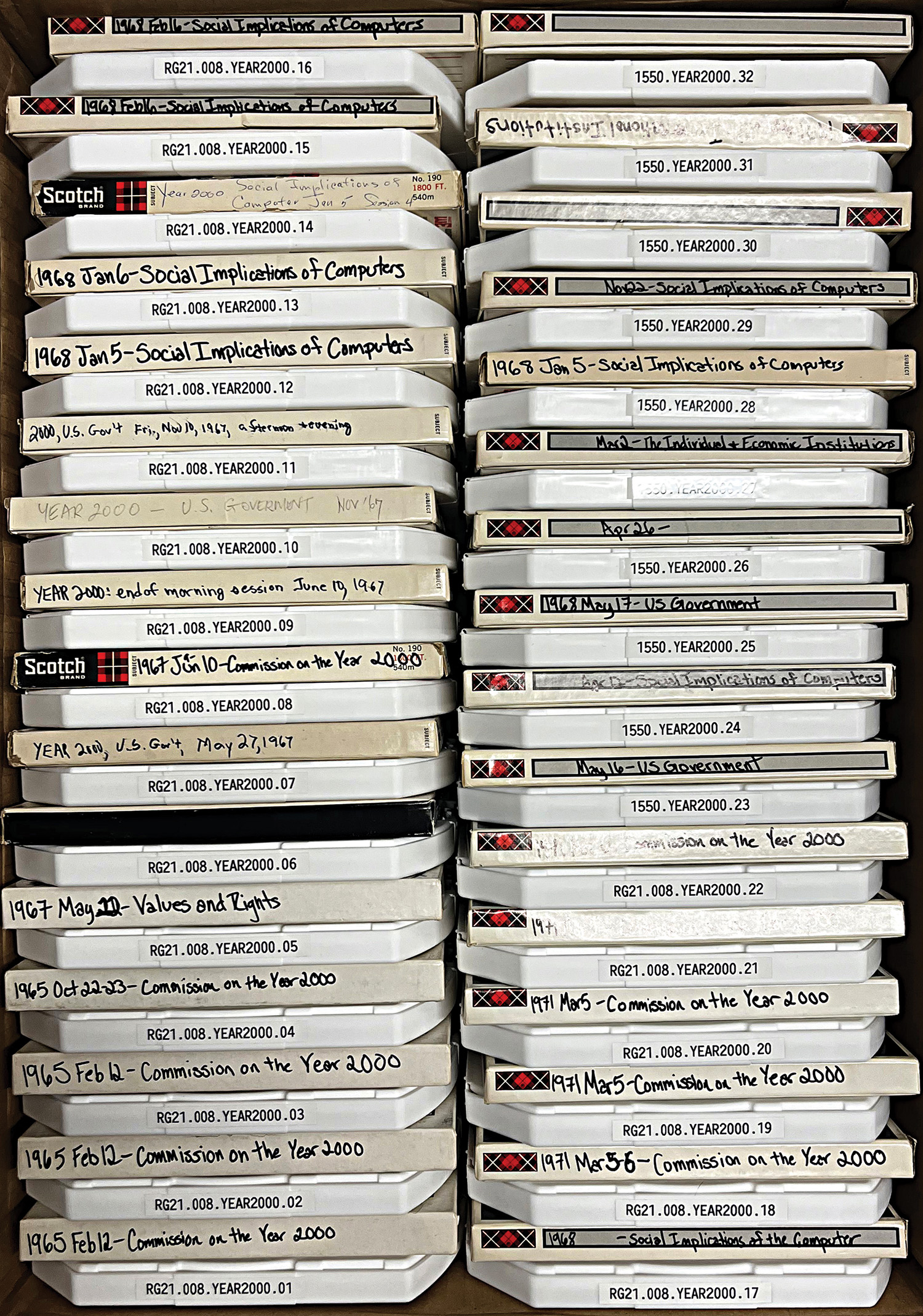By Michele Lavoie, Director of Archives, and Timothy Rodriguez, former Archives Intern
Interest in the new millennium surged in the mid-twentieth century with anticipation of the world to come, full of new technologies, shifting policies, and a changing role for the United States in the global arena. To explore these challenges and opportunities, in 1964 the Academy established the Commission on the Year 2000. Chaired by Daniel Bell, a sociologist at Harvard University and an Academy member (elected in 1964), the Commission’s task was to imagine the future and identify the social and intellectual questions likely to be central by the year 2000. Among the topics discussed were biomedical sciences and technology, economic and intellectual institutions, the individual and their life cycle, science and society, the social impact of the computer, the U.S. government, and rights and values.
In addition to an issue of Dædalus published in 1967, the Commission produced the following two publications: Toward the Year 2000: Work in Progress, ed. Daniel Bell and Stephen R. Graubard (The MIT Press, 1967, 1968, 1997); and The Future of the U.S. Government: Toward the Year 2000, ed. Harvey S. Perloff (George Braziller, Inc., 1971).
The records of the Commission on the Year 2000 are housed in the Academy’s Archives, and have proven to be of great interest to scholars worldwide, with researchers from France, Germany, and throughout the United States visiting the Archives to review the paper records in person. A finding aid for the materials is available on the Academy’s website.1 The Commission’s records also contain dozens of hours of audio recordings from its meetings.
Several researchers have contacted the Archives staff, asking for digital copies of some of the Commission’s materials. Supported by funding from the Jack, Joseph, and Morton Mandel Foundation, many of the records of the Commission have been digitized, resulting in preservation quality images of more than twelve thousand pages and audio files from more than fifty magnetic reels. The Archives staff is working to make many of these digital surrogates available via the Academy’s website to scholars and researchers worldwide.
